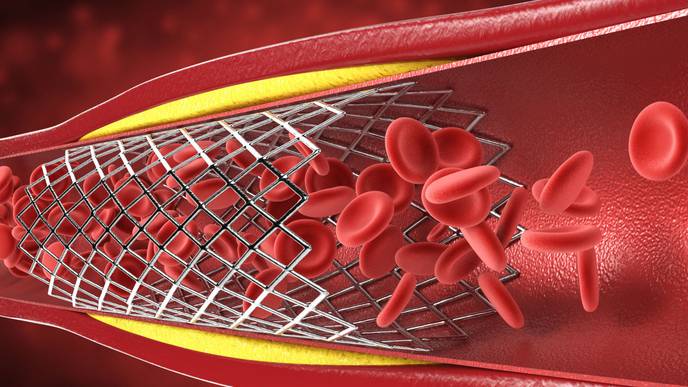ReachMD
Be part of the knowledge.™Japanese Registry Finds Use of IVUS in Coronary Interventions Reduces Mortality and Need for Coronary Bypass Surgery

A novel study conducted by a Japanese multicenter registry has revealed the significant benefits of using intravascular ultrasound (IVUS) in coronary intervention procedures. The comprehensive analysis, which focused on enhancing patient outcomes, has provided valuable insights into the effectiveness of IVUS in improving the success rates of these interventions.
The study, titled "Enhancing coronary intervention outcomes with the use of intravascular ultrasound: A comprehensive analysis of long-term benefits in Japanese multicenter registry," sheds light on the positive impact of IVUS on coronary interventions. The findings, presented today at TCT 2023 and published in the Journal of the Society for Cardiovascular Angiography & Interventions (JSCAI), highlight the strong benefits of incorporating IVUS into standard practice for coronary interventions.
Coronary intervention procedures, such as angioplasty and stenting, are commonly performed to treat coronary artery disease. IVUS is a medical imaging technique that allows physicians to visualize the inside of blood vessels, providing detailed information about plaque buildup and vessel dimensions. By utilizing IVUS during these procedures, physicians can make more informed decisions and optimize treatment strategies.
The Japanese multicenter registry, which included data from 8,721 patients in a multicenter PCI registry, demonstrated that the use of IVUS led to reduced mortality and need for coronary bypass surgery. The analysis revealed that reduced incidence of major adverse cardiac events, and improved long-term clinical outcomes in patients who underwent IVUS-guided procedures.
The registry findings showed that 83.8 % of patients underwent IVUS-guided PCI (mean age 68.3±11.3 years). After adjustments, the IVUS group had significantly lower rates of death and coronary bypass compared to no IVUS group (HR [95% CI]: 0.73 [0.55-0.96], 0.62 [0.39-0.98]) at the 2-year follow-up, although the primary outcome showed only marginal differences (HR [95% CI]: 0.85 [0.71-1.01]). In the subgroup analysis of complex coronary anatomy, the use of IVUS was significantly associated with a reduced risk of the primary outcome (HR [95% CI]: 0.72 [0.55-0.93]) as well as death, coronary bypass, heart failure.
Toshiki Kuno, MD, Ph.D., lead researcher of the study, emphasized the importance of these findings. "Our study provides robust evidence supporting the use of IVUS in coronary interventions. By visualizing the coronary arteries in real-time, physicians can accurately assess the severity of the disease and optimize stent placement, ultimately leading to better patient outcomes."
As the use of IVUS continues to gain recognition as a valuable tool in coronary interventions, further research and collaboration is critical to fully understand its potential and optimize its utilization. This registry studies advancing the field of coronary intervention and paves the way for improved patient care and outcomes.
More information: Toshiki Kuno et al, Enhancing Coronary Intervention Outcomes Using Intravascular Ultrasound: Analysis of Long-Term Benefits in a Japanese Multicenter Registry, Journal of the Society for Cardiovascular Angiography & Interventions (2023). DOI: 10.1016/j.jscai.2023.101190www.jscai.org/article/S2772-93 … (23)01192-4/fulltext
Citation: Japanese registry finds use of IVUS in coronary interventions reduces mortality and need for coronary bypass surgery (2023, October 24) retrieved 24 October 2023 from https://medicalxpress.com/news/2023-10-japanese-registry-ivus-coronary-interventions.html
This document is subject to copyright. Apart from any fair dealing for the purpose of private study or research, no part may be reproduced without the written permission. The content is provided for information purposes only.
Facebook Comments